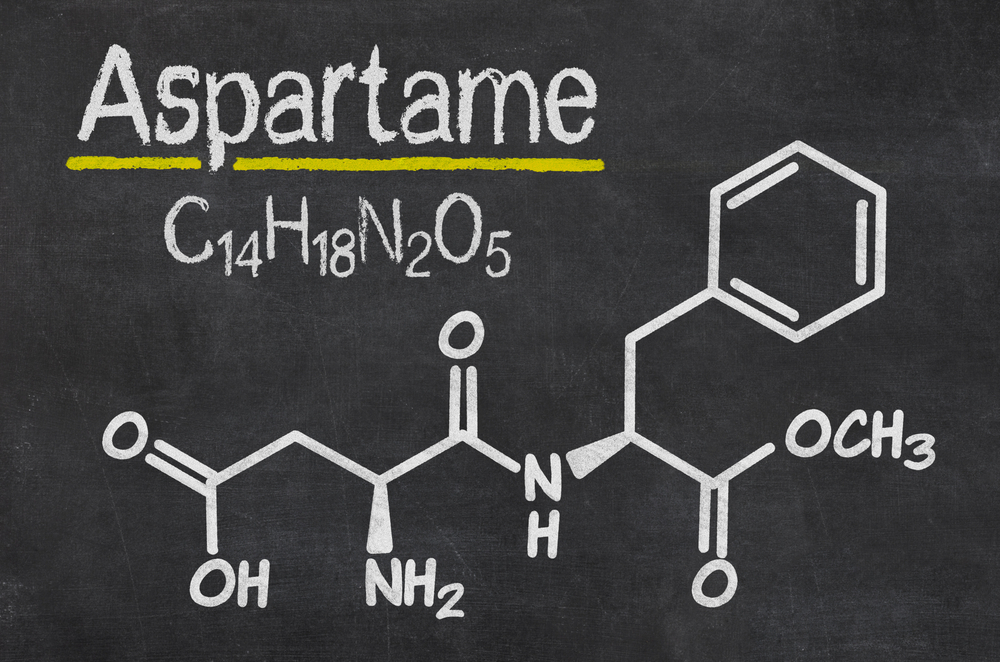One of the primary reasons why most persons seeking to burn fat turn to the ketogenic diet is that its results are believed to rapidly result in weight loss by a process called ketosis. Ketosis is a state of metabolic starvation that involves depriving the body of glucose which forces the body to burn fat.
For one to successfully follow a ketogenic diet, it is necessary to reduce the intake of high-carb foods such as desserts, processed foods, and foods that contain starch. In order to reach ketosis, an individual must also reduce the amount of sugar, limiting the number of baked foods and sweetened beverages. Reducing sugar may not be easy to achieve at first but may become easier with determination.
Many persons ask if they can safely use artificial sweeteners while on a keto diet without gaining weight and increasing blood sugar levels. One of the well known nonnutritive sweeteners used in ketogenic diets and in “sugar-free” foods is Aspartame.
Aspartame is composed of Phenylalanine and Aspartic acid, which are naturally found in the body. This artificial sweetener is only required in small amounts when added to food since it is much sweeter than regular table sugar – about 200 times sweeter than regular sugar.
Foods that Contain Aspartame
As already mentioned, Aspartame is one of the most popular low-calorie sweeteners, very low in net carbs although it is not entirely calorie-free. Aspartame is commonly used in beverages such as diet soda, ice cream, and juices with low calories, snacks, sweets, and candies, and even in yogurts.
In fact, most foods that contain Aspartame are marketed as having reduced sugar or as “diet” products, suggesting that ingesting them will be helpful to individuals who want to achieve weight loss by reducing the amount of sugar they consume.
Is Aspartame a Good Choice For Ketogenic Diets?
Aspartame is best described as a low-calorie artificial sweetener. In every one gram of Aspartame, there are four calories present so one needs to exercise caution when deciding how much Aspartame should be used to sweeten food. Ingesting this artificial sweetener in small amounts may be helpful when starting a ketogenic diet.
Another reason why Aspartame may be a healthy choice is that it is made up of naturally occurring amino acids, one produced by the body and the other, readily obtained from food. Aspartame also does not negatively impact blood glucose levels since it does not contain carbohydrates.
Various Health organizations have also endorsed the safety of Aspartame as an artificial sweetener. For instance, the World Health Organisation (WHO), the American Dietic Association, and more recently, in 2013, the European Food Safety Authority (EFSA) approved the use of Aspartame.
Why Aspartame May Not Be Keto-Friendly
Many persons turn to artificial sweeteners as a way to promote weight loss, especially when starting a keto diet but the results associated with use of Aspartame may not entirely be true since it has been linked to severe side effects that may not favor individuals on a keto diet in the long run.
A few of the side effects of using Aspartame as an artificial sweetener or in consuming foods containing Aspartame are discussed below.
Weight Gain
While it is popularly believed that consumption of Aspartame may help with weight loss because of its low-calorie content, recent studies show that this may not necessarily be the case. In fact, in one study, the consumption of Aspartame was linked with metabolic disease and weight gain.
Like any other sugar substitute, Aspartame may increase appetite and sugar cravings, thus leading to increased food consumption, and ultimately result in weight gain. Although the calorie in Aspartame is low, regular use as a keto sweetener may promote excessive eating.
Phenylketonuria
Individuals with phenylketonuria have a high level of phenylalanine in the blood since their body is unable to metabolize phenylalanine properly. Aspartame contains phenylalanine and should be avoided or taken in limited quantity by people with phenylketonuria. Ingesting Aspartame may thus not be a good choice for such patients since they always have to monitor their phenylalanine level or risk it reaching toxic levels.
Neurological Disorders
One of the main components of Aspartame is Aspartic acid, and it is an excitatory amino acid. Excess Aspartic acid has been linked with chronic neurological disorders such as memory loss, Parkinson’s disease, and multiple sclerosis; however, other studies do not directly link ingesting Aspartame to developing multiple sclerosis.
Cancer
It is believed that consuming Aspartame or foods that contain Aspartame may increase the risk of having cancer especially blood cancers, but there are also other studies that show that the consumption of this artificial sweetener is not connected to increased risk of cancer. The American Cancer Society published this study.
Other Alternatives to Aspartame on Keto Diet
It may become necessary to look for alternatives to Aspartame as there are so many controversies surrounding this artificial sweetener. Some good alternatives to Aspartame include stevia, maple syrup, date sugar, or sugar alcohol in erythritol, and xylitol.
Stevia is an artificial sweetener derived from the Stevia plant, and unlike Aspartame, it does not contain any calories, and research shows that ingesting this artificial sweetener may help lower blood pressure and blood sugar levels.
Maple syrup is gotten from the sap of the maple tree and like Aspartame, is becoming increasingly popular as a replacement for regular sugar. It has a lower glycemic index than regular sugar and has lesser calories than many other artificial sweeteners.
Erythritol is like Aspartame, a low carb sweetener, but it may be a suitable replacement because the body does not readily absorb it as such, it has a minimal effect on the blood sugar level. Erythritol also does not contain carbohydrates and calories and is suitable for weight loss.
Xylitol is an artificial sweetener with many health benefits, and it is also a low-calorie substitute for regular sugar and Aspartame. Xylitol has a low glycemic index, so it is suitable for those on the keto diet since it does not increase insulin level, and blood sugar level. This naturally obtained sweetener may be used safely by those hoping to shed weight without fear of gaining more weight.
Last, but not least is monk fruit sweetener which has a sweet taste without the off taste that a synthetic chemical sweetener may possess. It is considered one of the best keto friendly sweetener for keto dieters.
The Verdict
Is Aspartame a good sugar alternative for someone on a keto diet? According to the studies, consuming this artificial sweetener in a small quantity that is not above the recommended daily intake may be safe for everyone except those with phenylketonuria. If an individual with phenylketonuria wants to start a keto diet and needs to make use of alternative sweeteners, it is best to speak with a qualified health professional since ingesting this sweetener may be toxic to such individuals.
As mentioned earlier, there are so many controversies that surround the use of Aspartame as a non nutritive sweetener. For example, some studies say that ingesting Aspartame may not necessarily affect weight loss and may even cause a person to gain weight and develop other health conditions, including cancers and neurological disorders. Other studies, however, refute these claims and label Aspartame a great choice as an artificial sweetener.
Due to the many controversies associated with the use of Aspartame, it may be best to speak to a health professional before using this sweetener. It may be even easier to make use of the naturally obtained alternatives to Aspartame such as Stevia and acesulfame potassium that offer similar benefits.



